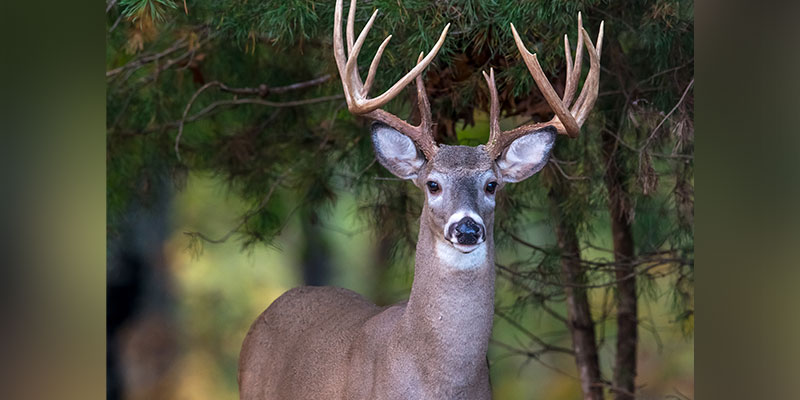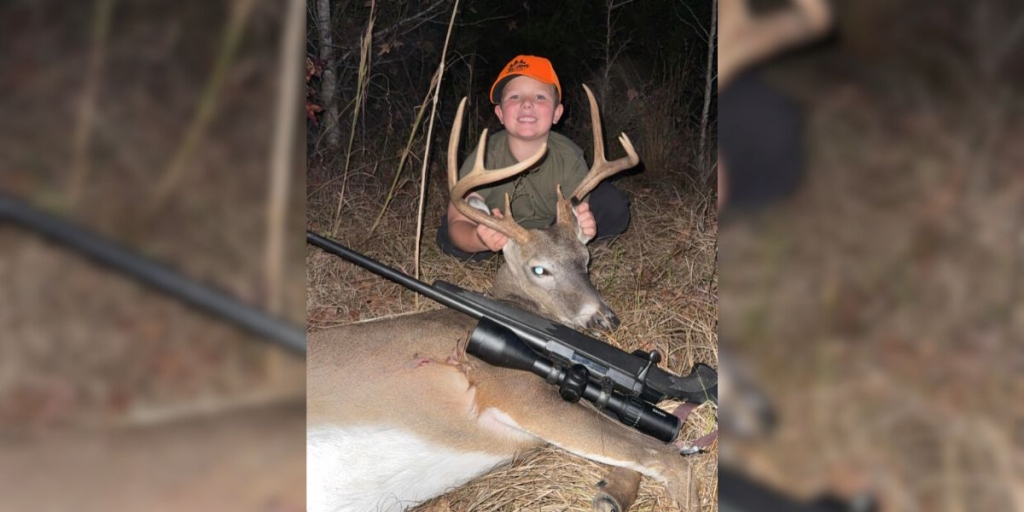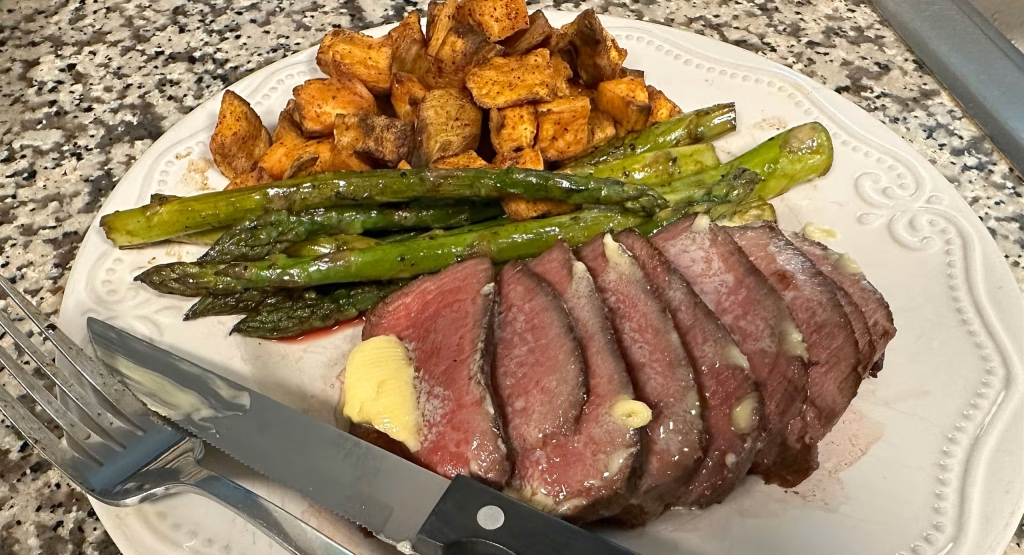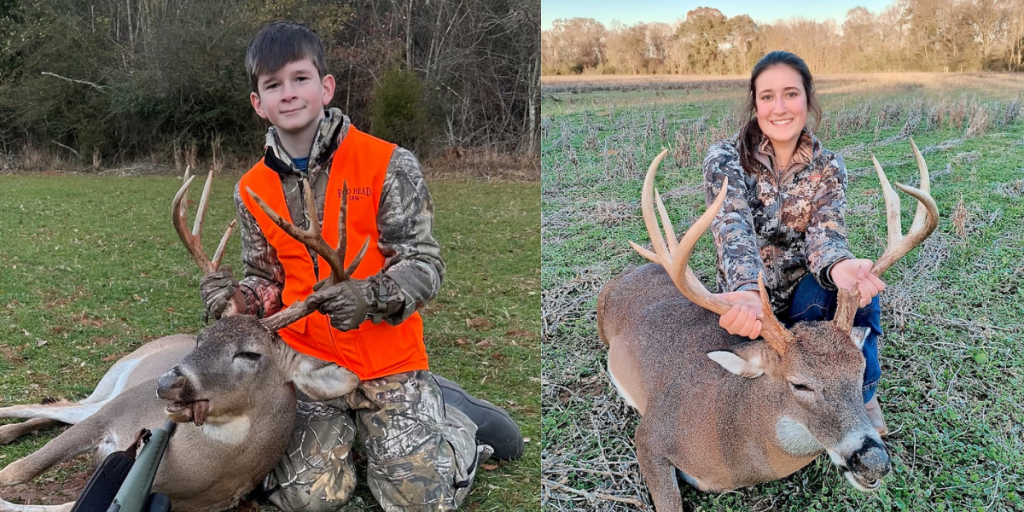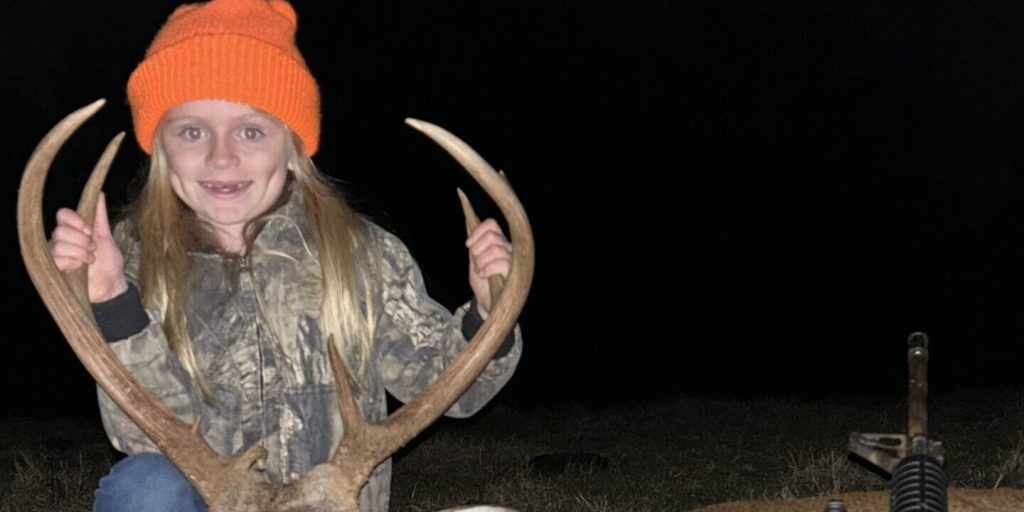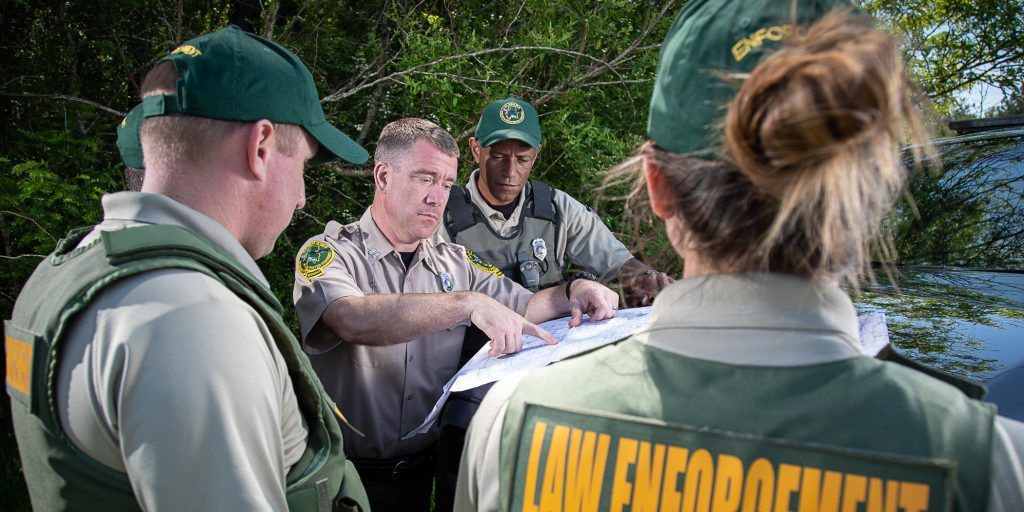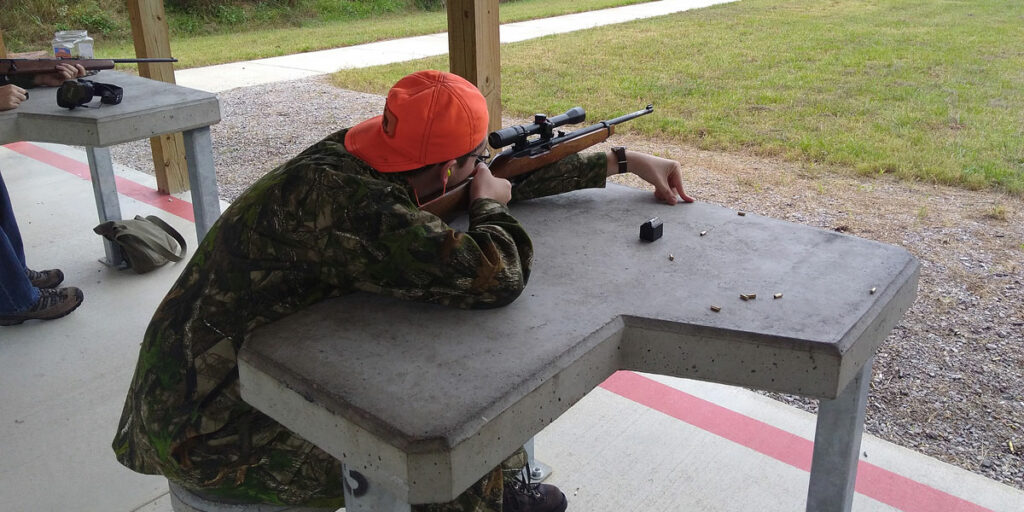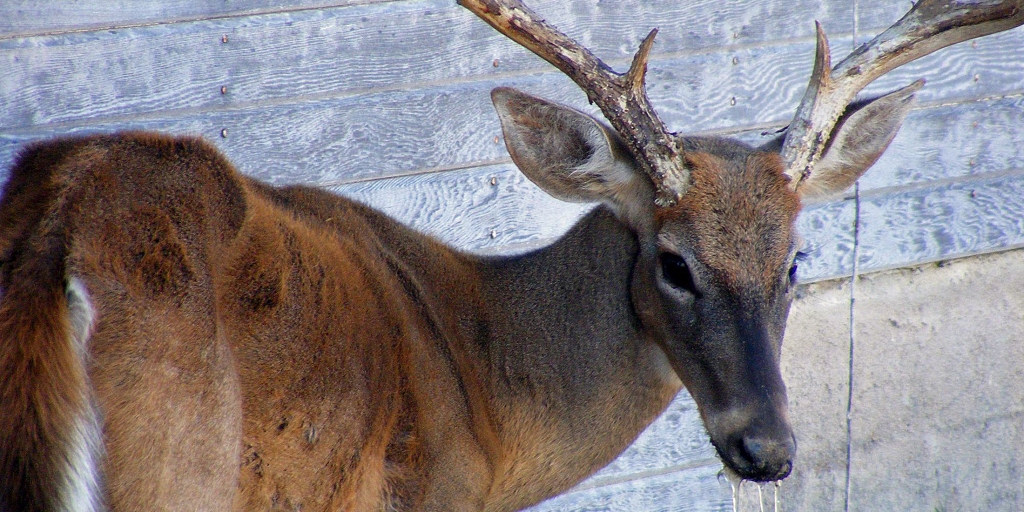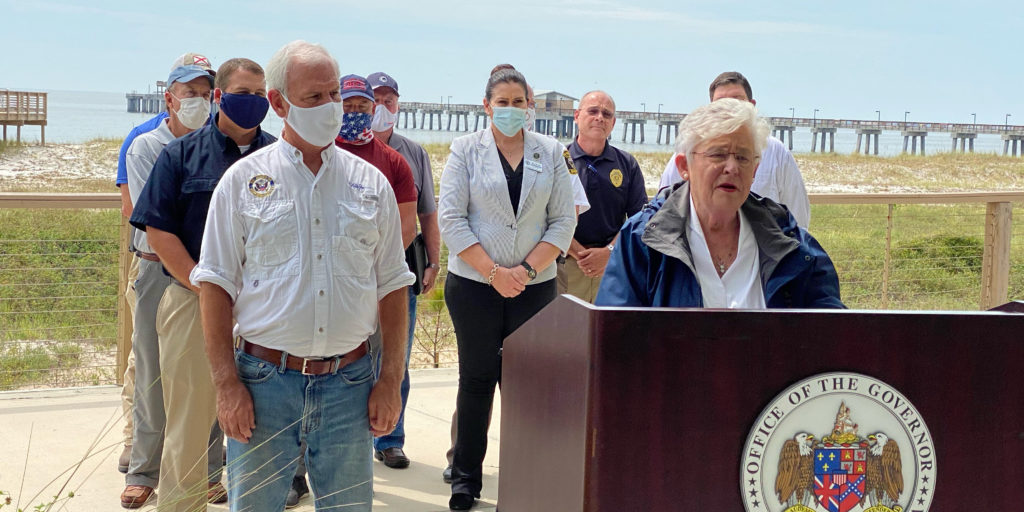Deer hunters will find two new zones in the 2020-2021 Alabama Deer Zones map with season dates that better coincide with deer rutting activity in those areas.
Chuck Sykes, Alabama Wildlife and Freshwater Fisheries (WFF) Director, said studies have confirmed that deer in Zone D in northwest Alabama and Zone E in southeast Alabama rut significantly earlier than deer in most of the state.
“We have been conducting annual herd health checks for the past 15 years. Part of the data gathered was the reproductive status of the animal. That data is what helped us move the season into February. We also determined we had deer that rutted early.” Sykes said. “We already knew this from historical stocking data, but it took us a little more time to determine some clear-cut boundaries that would take in those areas. It was pretty easy to set up Zone A and Zone B. We basically just divided the state. But D and E are isolated pockets with early rutting deer, so it took a little more time to get those boundaries defined. Once we got the boundaries defined, it was a logical step to make those new zones.”
Sykes said in the majority of the state the deer rut considerably later, and it was reasonable to move the season dates to close on February 10. The seasons in Zone D and Zone E start early and end early.
“Because of the early rut in Zone E, some of those deer were already casting (shedding) their antlers,” he said. “So, people who were trying to fill their freezers later in the year ended up shooting 2- and 3-year-old bucks that had cast their antlers, thinking they were just shooting a big, old doe. The season comes in early to cover the rut, but it also goes out early to try to protect those bucks that had already shed.”
Newcomers to hunting or those with little experience can take advantage of the WFF’s Adult Mentored Hunts (AMH), which Sykes said has been tweaked for the 2020-2021 season. Last year, a requirement to take a one-day workshop to be eligible for an AMH event was implemented. This year, potential participants can take a Hunting 101 or Introduction to Deer or Turkey to meet the requirement.
“What we found was we had too many people backing out at the last minute,” he said. “Now, with the introductory courses or Hunting 101, people have to have a little skin in the game. Once you complete the one-day workshop, you will be eligible for one of the three-day, full-blown Adult Mentored Hunts. Last year, our participation rates went through the roof on our three-day hunts. The people who were eligible had already been to the one-day workshop, and they had figured out if they wanted to participate. Our staff puts in a lot of work and effort to make these hunts happen, and to have somebody cancel at the last minute was taxing on us. Plus, I’m sure there would have been a lot of people willing to take that slot on one of the best hunting areas in the state.”
WFF’s Justin Grider, who has been in charge of the AMH events since their inception four years ago, said the new format has achieved positive results in terms of hunter recruitment.
“We’re finding that people who are self-motivated are signing up for the Hunting 101 workshop,” Grider said. “If they are willing to give up a Saturday and learn about hunting and firearms safety at one of our public shooting ranges, we’re finding they are more likely to continue hunting as a result. Whereas, our previous format was come one, come all. Whoever wanted to apply could, and the participants were randomly selected from that pool. But we ended up with attrition rates above 50 percent. We had people who accepted a spot and then backed out. That was very frustrating and a waste of state resources.”
Grider said the new workshops not only confirmed participants’ commitments, they also reached a broader audience.
“With the AMH events, we could only accommodate a few people at a time,” he said. “With the one-day workshops, we can accommodate as many people as want to come. Last year, we had about 40 people at the workshop outside of Birmingham.”
Grider said new this year is an option to attend a species-specific workshop that focuses on deer or turkey.
“When we polled our participants in hunter education, 90 percent said they wanted to hunt either deer or turkey,” he said. “We created those Learn-to-Hunt workshops to satisfy that demand. With that, we cast a really big net to reach a lot of folks.”
The Hunting 101 workshop covers the basics on hunting safety and is geared to small game, like rabbit hunting, squirrel hunting and dove hunting.
“If you come to one of these Learn-to-Hunt workshops, we will obviously focus on the safety components of firearms and treestand safety, and then we will really drill down on the hunting of a specific species. If it’s turkey, we will go into the different turkey calls, the gear we use, patterning shotguns, how to find birds, setting up for a hunt, everything you need to know to hunt turkeys.
“With Hunting 101, you’ll have a chance to shoot a .22 and a shotgun. You’ll learn about what is good squirrel habitat or where you can find some rabbits. Then later in the day, you will have the opportunity to do a little small-game hunting or become familiar with the habitat.”
Either workshop meets the requirement to apply for the three-day AMH events. Grider also said people can come to as many of the workshops as they want.
“These are great opportunities to meet additional staff members, additional mentors and new hunters,” Grider said. “That’s the other component of the one-day workshops – it’s a great opportunity to socialize with other hunters, mentors and staff. And it’s not based on previous hunting experience. If you’ve been an avid deer hunter for 20 years and are interested in turkey hunting, come to that turkey workshop. It’s a great networking tool.”
Anyone interested in one of the workshops or an AMH event can visit www.outdooralabama.com/hunting/adult-mentored-hunting-program and use the interactive map to find a Hunting 101 or Learn-to-Hunt event.
Although there has been little mention of chronic wasting disease (CWD) during the COVID-19 outbreak, Sykes said WFF still needs the assistance of hunters to properly monitor the state’s deer herd.
“We still need people to help us collect samples,” he said. “Just because COVID hit, CWD didn’t miraculously go away. We’re still collecting samples. We’re still doing all of our surveillance. And we need people to participate. We installed those self-check freezers around the state for people to drop off samples. The response from the public was less than desirable. Just because we’re not talking about it every day like we have been for the past couple of years, CWD didn’t go anywhere. There’s still the threat. The numbers in Mississippi and Tennessee are still growing. We have to be diligent in doing our part so if it does hit, we can react swiftly.”
Locations of the self-service freezers are available at https://www.outdooralabama.com/cwd-sampling.
Sykes also wants to remind deer and turkey hunters about the changes to the possession regulation for the upcoming seasons.
Hunters who harvest deer and turkeys must maintain proper paperwork when transferring possession of that animal to a processor, taxidermist or any other individual.
According to WFF’s Law Enforcement Section, the recording and reporting requirements remain the same in Game Check. The update concerns possession of the game by someone other than the hunter.
Whoever is in possession of all or part of a deer or turkey that is not their own must retain written documentation with the name of the hunter, the hunter’s Conservation ID number, the date of the harvest and Game Check confirmation number. The information can be documented on a piece of paper, or a transfer of possession certificate is available in the Alabama Hunting & Fishing Digest or online at outdooralabama.com.
The documentation must be kept as long as that person is in possession of that deer or turkey. The hunter who harvests the deer or turkey is required to enter that animal into the Game Check system and maintain in his or her possession a valid confirmation number for that animal.
Hunters still have 48 hours to report the harvest through Game Check to attain a confirmation number. However, the game cannot be transferred to another individual until a valid Game Check confirmation number has been acquired.
The easiest way to comply with the requirements is to download the Outdoor AL smartphone app. The other is to go to outdooralabama.com and click on “Game Check.” For those who don’t have internet access, WFF has self-service kiosks at all district offices. The 1-800 number is no longer in effect. Visit www.outdooralabama.com/transfer-possession for more information.
David Rainer is an award-winning writer who has covered Alabama’s great outdoors for 25 years. The former outdoors editor at the Mobile Press-Register, he writes for Outdoor Alabama, the website of the Alabama Department of Conservation and Natural Resources.




